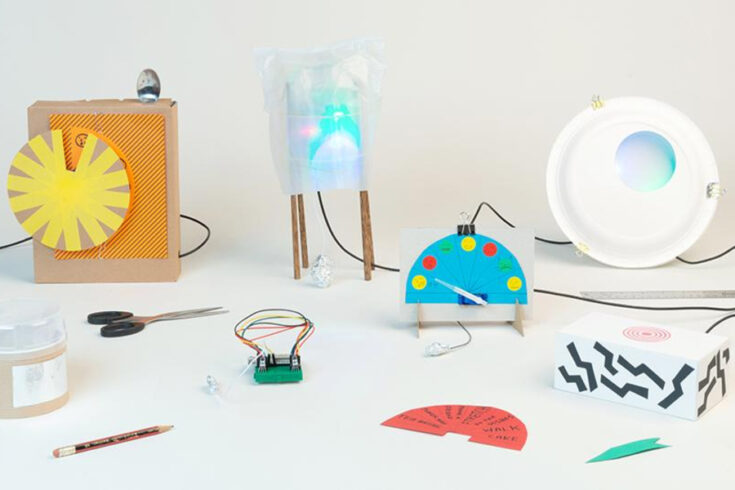A design team at Goldsmiths, University of London, have designed pairs of gadgets that can help people maintain a connection with faraway loved ones during the pandemic.
Yo-Yo Machines can be built at home by following simple instructions to assemble off-the-shelf components.
Low cost
They’ve been designed to be low cost and built in pairs, so that the other can be posted to a partner, friend or family member in lockdown elsewhere.
The three models can be made with paper plates, cereal boxes, jam jars and other household items and simple hardware like an ESP32S board and USB cable.
Download the software and instructions from Yo-Yo Machines’ website.
The project was funded by the Engineering and Physical Sciences Research Council (EPSRC) through UK Research and Innovation’s COVID-19 rapid response fund.
Connecting people
The designers explain:
It’s important to stay in touch while physically separated, but teleconferencing tools like Zoom and Teams can be a lot of work. What if you just want to send somebody a wave, or a smile, without demanding too much attention?
That’s what Yo-Yo Machines are for. Simple devices you can make yourself, they connect across the internet to let you send a signal that you’re thinking of somebody, and give just enough control to play around, or maybe invent a secret language.
Three different designs
So far, three designs have been released by the Interaction Research Studio at Goldsmiths:
- Light Touch
- Speed Dial
- Knock Knock.
Light Touch allows the users to exchange coloured lights across the internet. One person chooses and sends a colour, and then it pulses on the partner device and fades away slowly.
Professor Bill Gaver, co-director of the Interaction Research Studio, has been using a pair with his 92-year-old mother for a month. He said:
They’re surprisingly compelling – when she sends me a light from California it feels like she’s right next to my desk in London. It’s also really nice when I wake up or return home and find a light she’s sent earlier, and she says she looks for a light from me particularly when she gets up at night.
Users can create rhythms with light pulses, learn Morse code, or send and receive colour mixes to create new effects representing different things.
Speed Dial is a mood barometer and lets the user share their state of mind and be as serious or silly as they like, while Knock Knock sends tapping noises between devices.
30 years of research
The designs build on 30 years of research into systems that support peripheral and emotional awareness remotely.
Find out more about the history of Yo-Yo Machines.
More easy-to-use designs are set for release in the coming months, which can be built with the same basic hardware, and use light, sound or movement to communicate.
Interaction Research Studio in the Department of Design at Goldsmiths is led by Professor Bill Gaver and Andy Boucher. The studio explores the design of computational systems for everyday life, designing prototype products that encourage playfulness, exploration and insight.
Last updated: 20 December 2021

